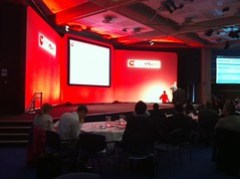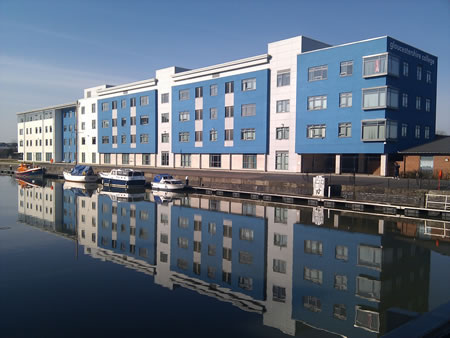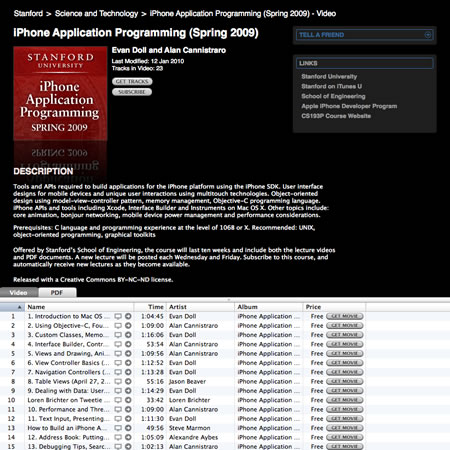I am leading a Podcasting Workshop on the 8th December 2010 between 10.00am to 4.00pm at the Gloucestershire College MoLeNET Academy at the Gloucester Campus of Gloucestershire College.
This is a hands on workshop looking at the process of:
- Planning
- Recording
- Editing
- Publication
- Distribution
- Marketing
of Podcasts for teaching and learning.
The workshop will look at:
- Content of podcasts, what works and what doesn’t.
- Recording, tools and tips, use of Skype, mp3 recorders, Audioboo, iPadio.
- Editing podcasts using tools such as Audacity or Garageband.
- Publishing your podcasts using blogging, FTP.
- Distribution, looking at creating and using RSS Feeds. Will also look at iTunes, the iTunes Store and iTunes U.
- Marketing, how you get your learners to listen to your podcast.
The day starts at 10.00am and will finish at 4.00pm, lunch will be provided.
The event will be led by James Clay and will be working with Di Dawson.
Travel
Gloucester is well served by rail networks from across the UK and the college is a 15 minute walk from the railway station.
Gloucester is on the M5 and can be accessed from Junction 12 from the South and Junction 11 from the North. Please note that there is NO PARKING available at the college, though pay and display car parks are close by.
Booking
Please book online at RSC South West.
The event is FREE to any member of the MoLeNET community, in other words your college has led or been a partner in any MoLeNET project.
Background
Gloucestershire College has a wealth of experience in the use of mobile devices to support assessment. With three successful MoLeNET projects and a MoLeNET Academy, the college is using podcasting, video and audio to support and enhance learning and assessment.
James Clay is an experienced podcaster with a well respected weekly podcast, e-Learning Stuff. James is and has been passionate about the use of learning technologies to enhance and enrich the learning experience since 1991. James has been ILT & Learning Resources Manager at Gloucestershire College since November 2006. He is responsible for the VLE, the use of learning technologies, e-learning, mobile learning, the libraries, digital and online resources and the strategic direction of the college in relation to the use of learning technologies.James has extensive experience of mobile learning and has a vision that goes beyond mobile technologies and focuses on the mobility of the learner, blurring the demarcation between formal and informal learning.
Di Dawson is an LSN MoLeNET Mentor and a gadget lover and she brings expertise to the day in the form of enthusiasm for mobile technologies and as a teacher trainer. She likes to link teaching theories to practice and explains how activities can be designed to make the learners think deeper and therefore broaden their learning. Di loves gaming technologies and she enjoys enthusing teaching staff to look ‘beyond the play’ and see the potential for learning. Di has written various books on the use of computers and handheld technology and delivers online training to education and business establishments. Technology has certainly changed since Di started as an IT tutor 20 years ago.
Photo source.












